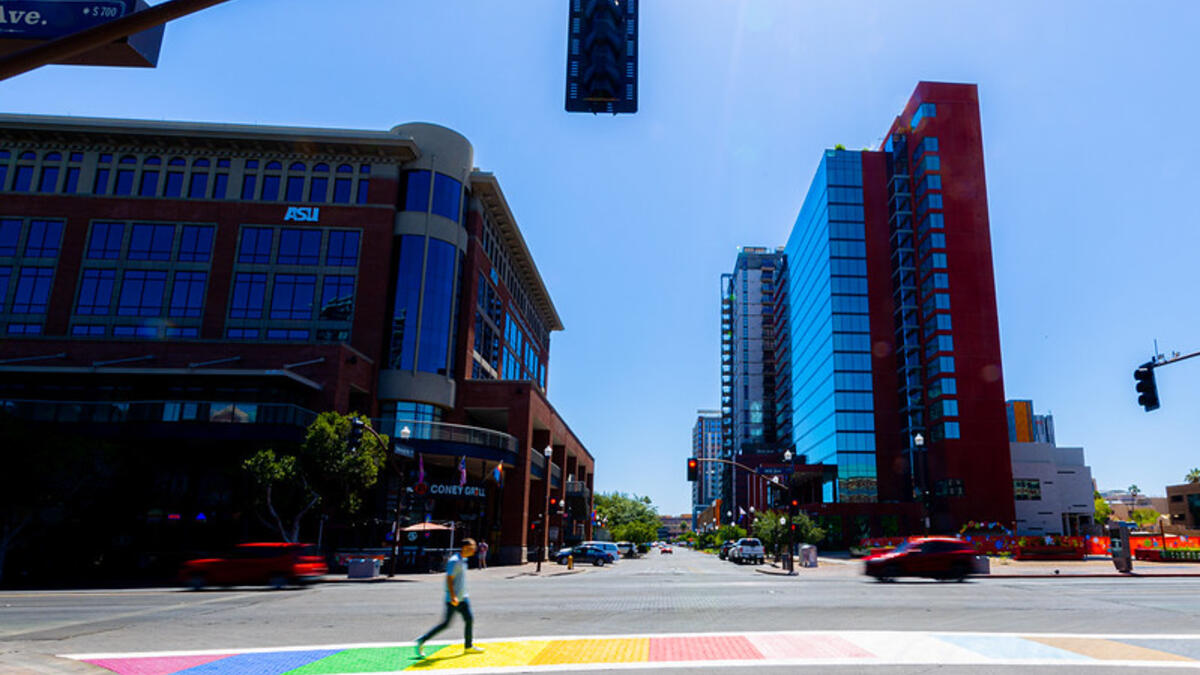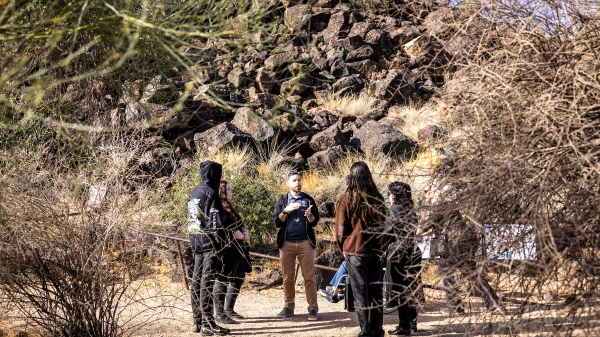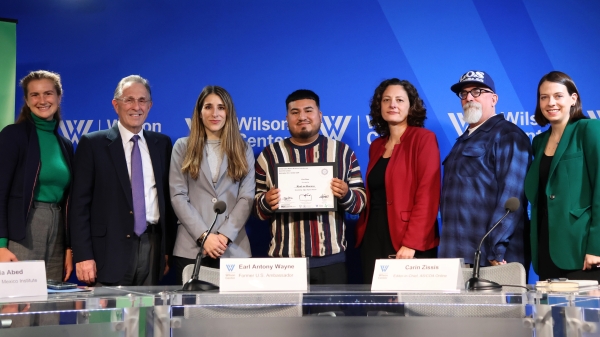ASU faculty discuss LGBTQ+ barriers, opportunities in education

In June, Pride Month is a time to promote inclusivity, raise awareness and celebrate the contributions the LGBTQ+ community has made to society. Photo by Meghan Finnerty
June is Pride Month, a time that promotes inclusivity, raises awareness of LGBTQ+ issues and celebrates the contributions the LGBTQ+ community has made to society.
In honor of Pride Month, we spoke to a group of educators at Arizona State University to get their expertise on topics such as book bans, LGBTQ+ representation in media, finding community and more.
A buffet of knowledge
According to PEN America, 41% percent of currently challenged or banned books have content related to LGBTQ+ identity and themes.
For example, “Gender Queer: A Memoir” by Maia Kobabe, the most banned book in the 2021–22 school year, has been banned in 41 districts.
Gabriel Acevedo is one of many faculty in The College of Liberal Arts and Sciences who are working to foster educational excellence, intellectual inquiry and discovery — from expanding students’ knowledge of LGBTQ+ literature to shifts in pop culture and community-driven work.
“I try to give students a buffet of knowledge, a sample of everything,” said Acevedo, an assistant professor in the Department of English. “As an educator, I cannot send you out into the world without knowing there are options. Then they can decide what to do with that information.
“A job of an educator is to tell you all the facts and what is out there for you to make choices. By limiting that knowledge or not providing access to it, we are underestimating the student's abilities to make choices that fit their lives," Acevedo said. "We learn by reading. We learn by engaging these topics. If we don’t know these topics (because) we don’t engage with these materials, are we learning?”
Fostering educational excellence and inclusion
Madelaine Adelman, a justice and social inquiry professor in the School of Social Transformation, researches LGBTQ+ identity and policy in the education system.
“There are people who are beaten down, worn out, not inspired to continue their education because of their negative experiences in the K–12 system,” she said.
Adelman says K–12 education is crucial to a young person’s development. If they feel accepted, they will want to continue their educational journey.
“School is five days a week; it’s a majority over their week,” Adelman said. “Why would they want to be in a place where they don’t feel accepted? Why would they want to continue their education in that space?
“The research, the teaching, the advocacy is so important. I want any student at ASU, or any other place for that matter, to feel they belong.”
David Boyles, an instructor in the Department of English, teaches LGBTQ+ Youth in Pop Culture and Politics, a Discovery Seminar that examines pop culture in the context of contemporary issues, such as conversion therapy, transgender people participating in school sports and teaching LGBTQ+ history.
Because college is a time for exploration, self-discovery and personal reflection, these Discovery Seminars ideally allow first-year students a space to uncover new topics in a supportive environment.
Boyles has been teaching the course since fall 2019 and uses it to provide context and allow students to expand their knowledge to make informed decisions.
“My goal with the class was to present this information and open up opportunities for further discussion,” he said. “Whether that is talking about LGBTQ portrayals in media or television or the shift in cultural and political landscapes.”
Representation in the media
Julia Himberg, the director of the film and media studies program in the Department of English, researches media representation of the LGBTQ+ community and serves as a board member for GLSEN Arizona.
Her course LGBTV: Television, Sexuality and Gender dives into popular shows that feature lesbian, gay, bisexual and transgender characters. It looks at the representation of these characters and personalities in reality shows, sitcoms and dramas to “understand the complex functionalities of sexual identity in television shows.”
Despite upward trends in book bans and other anti-LGBTQ+ legislation, the U.S. has seen an increase in representation of the LGBTQ+ community on TV.
For instance, between June 2021 and May 2022, a record high of 11.9% of regular characters on primetime TV shows were LGBTQ+, according to a study from GLAAD.
“We’ve seen a massive amount of change in the industry itself and how we consume television,” Himberg said. “I’m seeing this bigger push for representation in front of the cameras and behind the camera with the people helping to tell the story.”
Learning outside the classroom
The ASU scholars stressed that opportunities to learn about LGBTQ+ issues don't have to be limited to the classroom, and recommend for people to go out on their own to find resources and educate themselves about understanding various perspectives.
“I always encourage people, if they feel uncomfortable with a topic, to sit down and talk about it. It’s challenging your perspective and showing you a different outlook,” Acevedo said.
“You may not agree with it, but it’s something that exists, and you’ll be grateful in the end because you had that conversation.”
Some resources include:
• Media recommendations from faculty at The College that share LGBTQ+ stories and perspectives.
• Information about workshops, resources, cultural celebrations and more.
• How The College is helping support and foster a culture of inclusiveness.
For other ways to get involved, check out the following local organizations:
• AZTYPO.
More Arts, humanities and education

Petroglyph preserve celebrates 30th anniversary with ancient, modern tales
The Deer Valley Petroglyph Preserve provides a beautiful walk through a pristine desert where chuckwalla lizards are as plentiful…

Kaleidoscope short film contest inspires powerful binational filmmaking in its second year
“We come to this country not to steal anybody’s jobs but to take advantage of the opportunities that the rest ignore. We’ve been…

ASU's Neal Lester reflects on life, death of poet Nikki Giovanni
When Neal Lester heard on Monday that poet and activist Nikki Giovanni had died, the news hit hard.Lester, the founding director…